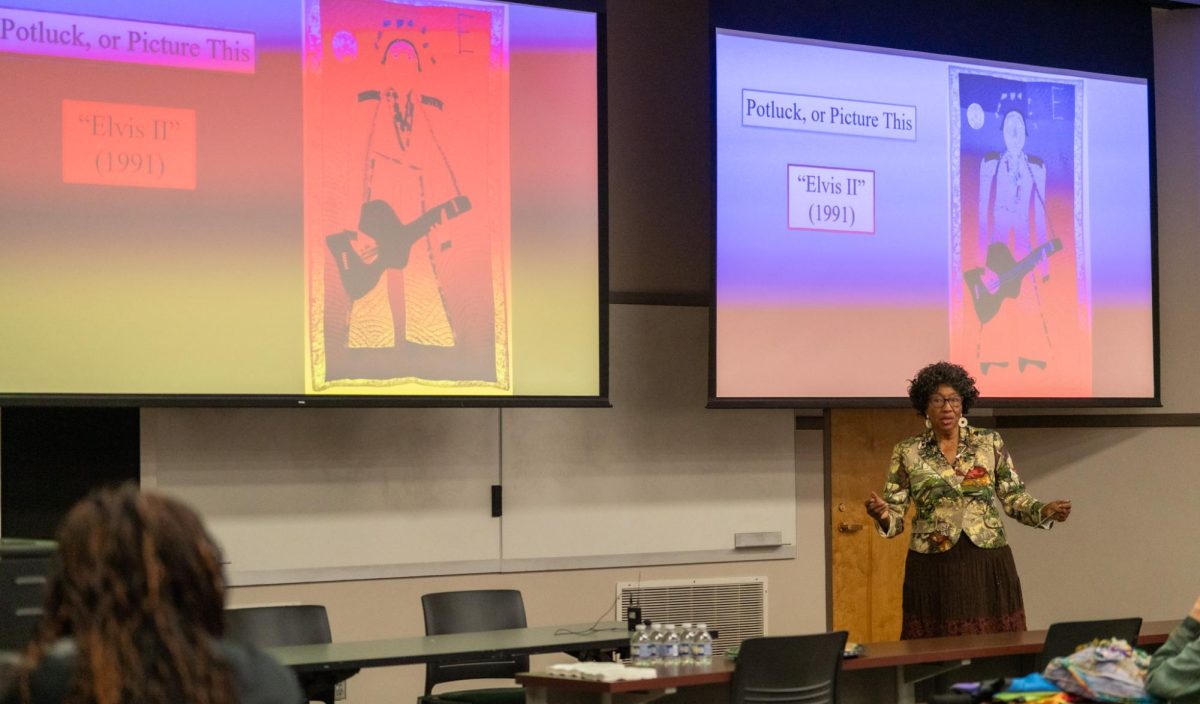When professors consider participation as a part of final grades, many students may wonder what that actually entails, especially when this section on a syllabus can vary widely from one class to another.
Some professors consider group projects and presentations, involvement in community events, and consistent questions and contributions, while in other cases, the grade may simply follow regular class attendance.
“I really do try to give people a lot of grace, because I know that it’s not an easy time to live in. There’s a lot of anxiety, we’ve been through a pandemic [and] there’s weird political stuff going on,” said Wendy Rawlings, an English professor.
Rawlings’ creative writing courses are discussion-based and capped at 12 students. She noticed that attendance rates decreased after the pandemic and has been more lenient on grading participation and attendance as a result, especially when considering some students who are shy or have learning disabilities.
Ana Schuber, a women’s studies professor in the gender and race studies department, has been at the University for 34 years and has also noticed a stark decrease in attendance. Schuber acknowledges that students may have personal reasons for not participating or attending, but stresses that showing up to class and contributing is “a responsibility” that carries into professional positions after college.
“My job is to help them understand what critical thinking is, because they’re going forward and becoming adults going out into the work world, and it’s something they can take with them,” Schuber said. “I ask them things like, ‘Okay, you don’t come to class. Are you going to do that when you get a job?’”
Schuber teaches larger classes that are lecture- and discussion-based about current events, race, class, gender and sexuality. She motivates students to participate by asking them to give a news story every class and to go out into the community to investigate topics addressed in class and bring back examples.
If a student does not show up to class, there is no chance to physically interact, leading many professors to deduct points off of attendance and participation grades. However, Schuber said even students who do show up may seem detached by using technology instead of actively participating in class.
“I ask them a question, and they stare at me in a terrified manner,” Schuber said. “So not only am I teaching, I’m trying to get them to understand that their responsibility in the world as an adult is much beyond just looking at the phone.”
Schuber said that students’ behavior may have to do with the cultural shift newer generations have experienced surrounding education.
“It’s really not their fault, but I think we’re doing them a horrible disservice if we don’t get them to talk,” Schuber said.
Class sizes can contribute to students’ level of comfort with participating and the relationship they develop with their professors.
Kenton Jordan, a freshman majoring in business, took large lecture classes in the fall with mostly note-taking but started taking smaller classes with more discussions for the spring semester. He said he feels that participation grades should depend on what’s necessary for the particular class.
“This semester feels more involved because I feel like last semester with all the big classes, it just seemed like there was no connection between me and the professor because there were so many kids in the class,” Jordan said.
Rawlings encourages students to seek out “that small group experience, particularly for topics that are really important to them,” if they can. She said that smaller classes promote conversations that help students develop intellectually and better articulate their thoughts.
Many professors attempt to reach out if they notice a student isn’t attending class or participating enough, but it can also help if students communicate their circumstances in advance.
“I think professors don’t give students enough credit,” Rawlings said.
Professors like Rawlings and Schuber emphasized the value of responsibility and involvement in the classroom.
“I don’t really want to police people. I want to teach the people who want to learn, who are fully present to me, and I can tell exactly who those people are,” Rawlings said.









